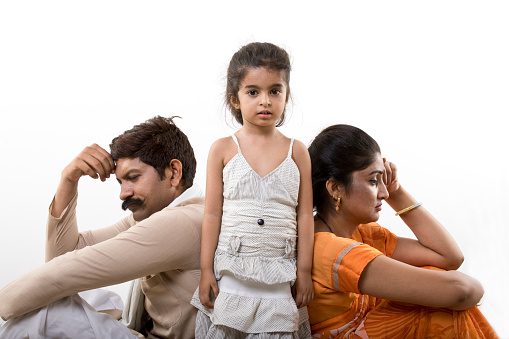What exactly are Family Issues?
Family issues are situations in which conflict becomes so intense or frequent that it interferes with your daily life.
Families are much more than groups of people who have the same genes or live in the same house. They should be a source of comfort and love. This does not imply that everyone always gets along. Family life is full of disagreements. Many factors can contribute to conflict, including illness, disability, addiction, job loss, school problems, and marital problems. Listening to one another and working together to resolve conflicts are essential for family unity. Some degree of conflict within families is normal (and even, to a point, healthy), but when it’s overwhelming, it can lead to symptoms of common mental health conditions such as anxiety or depression.
Signs and Symptoms of Family Issues
Some of the most reported symptoms during family issues are:
- Anxiety
- Depression
- Stress
- Fights with loved ones
- Low self-confidence
Types of Family Issues
- Parent-Child Conflict: Issues between parents and children can be especially emotional and deeply rooted, in part because our parents often play such a large role in our earliest development.
- Conflict around culture, religion, or lifestyle: Families frequently have preconceived notions about the kinds of lives their members should lead, particularly when a specific religion or culture plays a major role in the family’s life. Conflict can arise when one person in the family violates these social rules.
- Communication Issues: You don’t feel heard; you’re unsure whether the other person understands what you’re saying, and you find it difficult to express yourself. These are all examples of communication problems, which are a common stumbling block in many family relationships.
- Violence and Abuse: When a family issue escalates into verbal or physical aggression or intimidation by one or more individuals, the relationship(s) may be deemed abusive. Abuse is typically far more destructive and tiring than the other family problems discussed here.
Treatment of Family Issues
You have several options if you are experiencing stress, conflict, or danger in your family relationship. Among them are the following:
- Therapy: You can work with a therapist on your own, or you can attend couples’ or family therapy, which involves multiple people in sessions with a therapist.
- Mindfulness or meditation practice: Making time for quiet reflection can help you gain perspective on family issues and find a way to approach them calmly, as well as reduce the stress and anxiety symptoms that these issues can cause.
- Journaling: Keeping a written record of your thoughts and feelings about family issues may assist you in clarifying your perspective on these issues and their role in your life.
- Connect with other friends and family members: When a family relationship is stressful, it can be beneficial to lean on other important people in your life for support. They may be able to assist you in understanding your family issues, as well as relieve stress in the stressful relationship(s) by reminding you of the other people on whom you rely.
